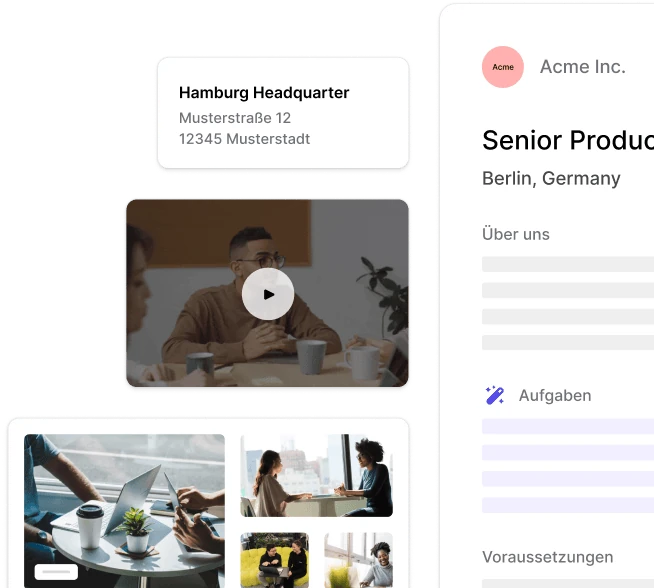Hiring software engineers as a tech recruiter
There is an increasingly huge demand for software engineers in almost every industry these days, and there’s no sign of that slowing down any time soon. Whether it be for front or back end, data or design, we need tech people, and we need them now.
As this demand grows, it’s not surprising that recruiters and hiring managers are now having to interview and learn how to hire Software Engineers. So, how can you accurately assess a techie’s experience and qualifications if you don’t really feel comfortable with the jargon? Or, if you don’t know what the team is really looking for in a new starter?
Below, you’ll find all the tips you need to recruit and hire great Software Engineers as a tech recruiter.
The easy way to hire Software Engineers
The simplest way to ensure that you’re interviewing suitable software engineering candidates with the right skills and experience is to invite a mid-level to senior-level employee from your development team. An individual at this level will be able to help confirm the interviewee’s hard skills and practical experience.
Having said that, this can be a little easier said than done, especially when you have multiple candidates with multiple rounds of interviews. You’ll possibly find pretty quickly that the tech department doesn’t have the time or resources to check in with every interview you’re running, and adding another person to the mix makes it more complicated time-wise.
Therefore, it’s a really clever idea to get to grips with holding software engineer interviews because, inevitably, we’ll need more of them, and it will simply make your life easier if you’re more confident with the questions you’re asking and the code you’re looking at.
To help with this, we at JOIN put together a selection of example interview questions that might inspire you when hiring engineers.
Find inspiration for your interviews Our example interview questions library contains questions for 100+ job roles
Perfect your Software Engineer job descriptions
One thing that can make hiring a Software Developer much, much easier, is to get your job advertisement right the first time.
Writing the perfect Software Engineer job description will take some of the pressure out of the process, as candidates can match their skills up to your expectations. Therefore, disqualifying themselves if they aren’t the right fit. This will mean you’re only interviewing candidates who think they’re up for the challenge.

Software Engineer skill sets come first
Of course, there’s no getting around the fact that you’ll have to get to grips with the programming languages needed for each role. These can be pretty extensive and there’s really no end to how deep you can research and learn about each one. But, as long as you have the basic knowledge of why you’d choose to use each one, and an outline understanding of what they do exactly, you’ll be able to work out the knowledge level of the interviewee.
You’ll surely get a list from the tech team on what languages they will need their new hire to be proficient in, and over time from researching each one, you’ll have a broad understanding. You can also invite a mid or senior-level developer to a meeting to go through the most important points about each language for them.
Once you have that list and you’ve learnt a bit about each one, you can frame some questions around them.
- Ask to see an app or project that they’ve developed using one of the required languages. You’ll get a really good idea of how in-depth their experience is like this as well as how passionate they are about their role.
- Think about how they’ll fit into the company as a whole. If you’re hiring within a travel company, have they worked in a similar area? It’s not essential to have industry knowledge, but it sure is an advantage.
Utilise Software Engineering coding tests
Don’t be scared! It’s not as overwhelming as combing through code all by yourself to work out if they’re speaking the same language (one that you can’t even speak) or trying to work out if they’re a ‘clean coder’.
You can now use automated vetting tools to do all the heavy lifting for you, they usually even come with pre-built coding tests so you don’t need to think about those either!
Some of the more popular coding vetting tools:
- Has a screening tool made to evaluate real-life development and programming skills as well as technical knowledge.
- Use virtual whiteboards when conducting online interviews.
- Create coding challenges easily.
- Hosts coding assessments and challenges.
- Recruiters can tailor coding tests to ensure they match the open role perfectly.
- Ability to host online interviews within a collaborative coding environment with the use of predefined tests.
- Has developed AI technology to assess the candidates without recruiter intervention.
- Can automatically generate the vetting test and assess the results.
- Coding challenges, and an advanced creative challenge that tries to discover hidden talent within candidates.
How about recruiting Software Engineers in person?
What if you prefer to meet these potential team members in person? Can you do something similar with a more human approach without the need for AI or online interviews?
For sure, you can! Here’s how to hire Software Developers in person:
Hackathons
A hackathon is an event where you can unite developers to create a new project or work on improving one together. You can schedule these in the office with potential hires to show how they will potentially work together with the team.
Hackathons are especially useful if you’re looking to hire a new team entirely. This way you can see first hand how they would collaborate with each other and if there are any areas that wouldn’t work as well with certain dynamics.
Also read: How to run a hackathon at your company to attract tech talent
Pair programming
Pair programming is a really useful and simple way to get an understanding of how a candidate works with specific languages, but especially for assessing collaborative skills and how they’ll work together within teams or respond to feedback.
Pair programming is exactly how it sounds, a potential hire will go through a coding session together with one other developer on the same computer screen.
Essential Software Engineer soft skills
Of course, like any other interview and hiring process, it’s important never to overlook the soft skills of a candidate, as they will shape the way they work both individually and within their teams. Some things to make sure you keep in mind and ask questions about:
- Can you describe a situation where there was a conflict that you successfully resolved?
- How do you ensure you keep focused while working remotely?
- How are you looking to develop your skills in the future? What would you like to learn?
- How do you usually collaborate in your team?
- What is your preferred working method? How do you organise yourself?
Vetting a software engineer sounds like a daunting task if you’re not experienced or familiar in the field yourself, but it doesn’t have to be as difficult as it sounds. Make sure you have a basic understanding of languages, outline your interview process, and use your development teams to ensure you stay on the right track while trying to find that next coding whizz.
Need advice on recruiting for other areas of a small business? These articles might help:
Hannah Squire
Hannah was a Content Specialist at JOIN. During her time with us, she mostly wrote about improving company culture and building stronger teams.
![Hiring a project manager [how-to guide]](https://cdn-public-assets.join.com/2023/10/8d26d04c-hiring-project-manager.jpg)

